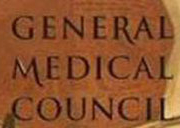Scottish Government muddles sex and gender – and plans to legalise the confusion
 The Scottish Government is consulting on a plan to make the existing process to obtain legal recognition under the Gender Recognition Act 2004 a better service for those trans and non-binary people in Scotland who wish to use it.
The Scottish Government is consulting on a plan to make the existing process to obtain legal recognition under the Gender Recognition Act 2004 a better service for those trans and non-binary people in Scotland who wish to use it.
Under the law, as it stands, to legally change gender a person needs to be over 18, have been diagnosed with gender dysphoria by a medical practitioner, and have lived in their new gender identity for two years before applying to a gender recognition panel for a Gender Recognition Certificate (GRC). The recognition process is lengthy, interviews may be experienced as intrusive, and the gathering of evidence in support of the application can be costly, complicated and inaccessible to some trans people. Some reform is therefore required.
One proposal for streamlining is to remove the current requirement for a medical diagnosis, replacing it with a simple self-declaration process. A person’s gender would be defined by their subjective, innate sense of identity, whether male, female or something else (non-binary) and may or may not correspond to the sex assigned to them at birth. Under the proposals, a person could apply to the Registrar General for Scotland after having lived in their acquired gender for a minimum of three months (rather than the current two years). After a further three-month period of reflection, the applicant would be required to confirm their intention to live permanently in their acquired gender and swear to that effect in front of a notary public or a justice of the peace. Registration would give legal status to their self-declared gender identity and the right to update their birth certificate and other documents accordingly.
CMF opposes the move to a self-declaration model, not because we wish to endorse the assessment model in its current form, but because we believe the proposed change would lead to a worse outcome. You can find our submission to the consultation here.
What this whole debate cries out for is a clear understanding of the difference between sex and gender. In the public mind, the two things are becoming synonymous. Gender ideology insists that identity is the important thing and that sex is only a social construct. Failure to rightly distinguish the two concepts will lead to problems, not least in the area of healthcare.
Biological sex is immutable – it cannot be changed. Leaving aside those (fortunately) rare intersex disorders of sexual development, sex is a biological binary – male or female – based on a person’s chromosomes, anatomy, physiology and reproductive system. For the vast majority of people, including those who may later identify as trans, biological sex is easily determined at birth and is not disputed. The trans person has at some stage come to the view, held sincerely, that their true inner identity is incongruent with their biological sex. They may choose to change their physical characteristics through sex hormone therapy and gender reassignment surgery, but their underlying sex will not be changed. The question for doctors is: can someone who is clearly male or female, reproductively, reject their biology at a certain point and thereafter be treated as though they are the same as someone of the opposite sex?
Gender is much harder to define. It is often used to describe the framework of roles and behaviours associated with men and women in a particular culture. Gender identity refers to a person’s inner, subjective sense of how their own personality, preferences and behaviours fit with the norms of their culture’s role expectations for members of their sex. Gender Dysphoria (GD) results from a perceived mismatch between a person’s biological sex and their gender identity. There is no objective test that can be used to diagnose GD. Nor is there any objective means of measurement for gender identity – it is akin to a belief, a conviction that cannot be confirmed or measured empirically.
There is a tension between gender and sex in clinical practice. A trans person’s sense of selfhood is declared in their chosen gender identity, but their sex is expressed in their given natal biology. The General Medical Council (GMC) provides advice to doctors who care for persons who do not identify as their biological sex. Under the heading ‘Confidentiality and equality’ they say:
Respect a patient’s request to change the sex indicated on their medical records; you don’t have to wait for a Gender Recognition Certificate or an updated birth certificate. Don’t disclose a patient’s gender history unless it is directly relevant to the condition or its likely treatment. It’s unlawful to disclose a patient’s gender history without their consent.
Here’s the problem with that advice: changing the sex written on their medical record does not change the sex written in their biology. Sex is not ‘assigned’ at birth but revealed by it, recognised and recorded. It is not a social construct but an empirically observable, biological truth. The GMC is asking doctors to collude in a deception – that an individual’s sex can be changed with the stroke of a pen. Of course, a trans patient’s right to be assigned the gender consistent with their chosen identity and addressed in a manner consistent with that acquired gender identity must be respected. But should that assignation be recorded under the category sex, or under a separate category of gender identity? Might it not be in the best interests of trans individuals that their medical records continue to show their natal sex, alongside a record of their preferred gender identity?
As Sarah Dahlen has pointed out, if a trans man presents to a doctor in A&E with lower abdominal pain, and his medical record does not reveal that he was born biologically female, the doctor will not consider certain possible causes of his pain. The patient may find himself being referred to a gastroenterologist when a gynaecologist is what he needs. The same man, now officially categorised as male, will no longer receive reminders to attend for regular cervical screening and must remember to book in himself. Should he forget, he might be at greater risk of cervical cancer going unrecognised. Likewise, a natal male, newly designated female as a trans woman, may be distressed to receive an inappropriate invitation to attend for a smear test, lacking the anatomy.
Biological differences between females and males have an impact on many aspects of medical interpretation. For example, reference ranges for common blood tests differ between the sexes. Retaining natal sex as a category on patient notes, alongside gender identity, would prevent doctors from being misled and avoid added stress for trans patients caused by repeatedly having to explain their situations.
Research results will be impacted by obscuring trans patients within medical records. The particular health needs of trans patients will be impossible to identify. Separation of sex from gender identity is necessary to generate accurate research data.
The Scottish Government wants to streamline the process of gender recognition for people who identify as trans. Reform of the current process is necessary, but self-declaration and the removal of biological sex from medical records is not the way to go.











Leave a Reply
Want to join the discussion?Feel free to contribute!